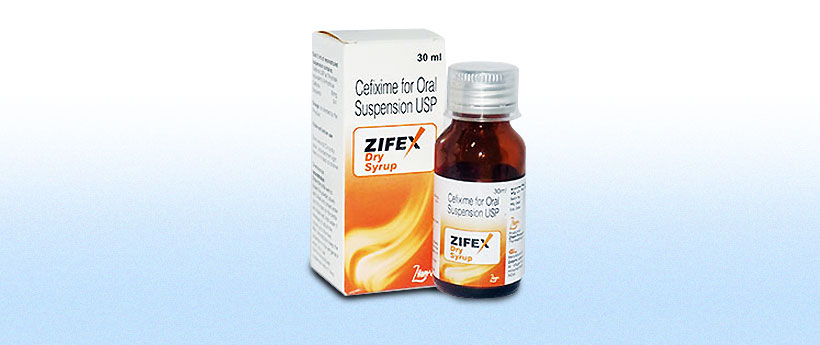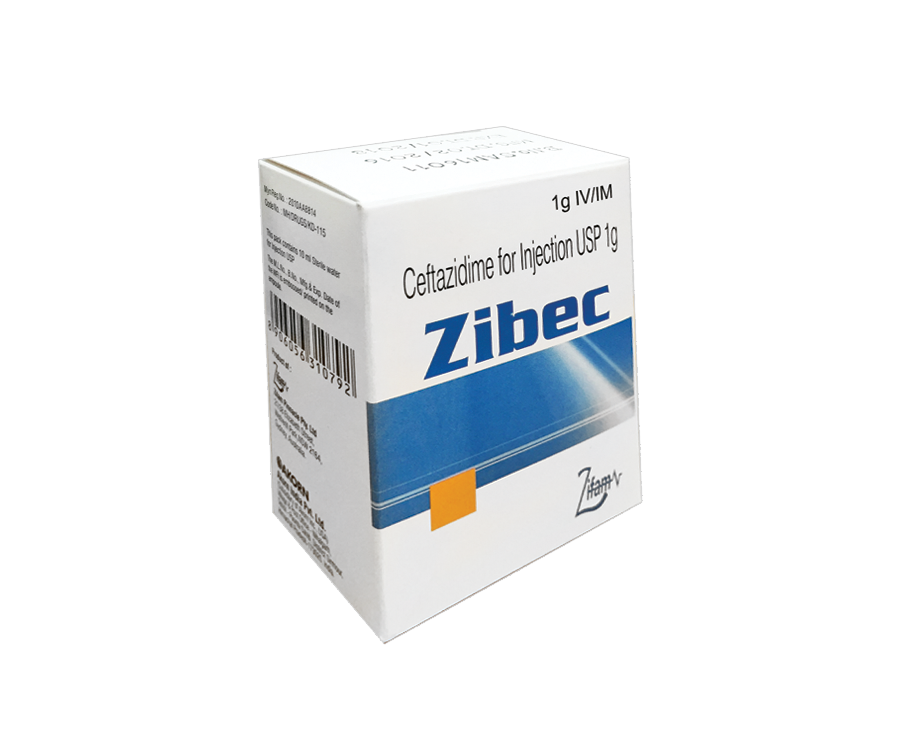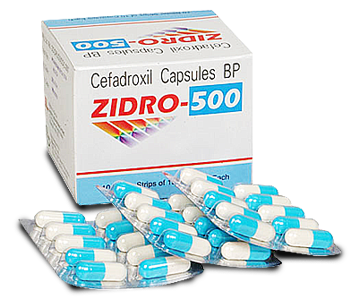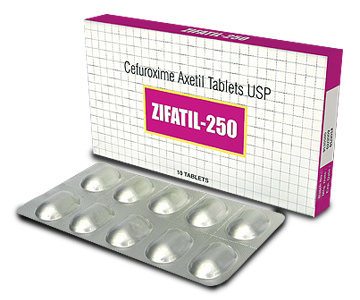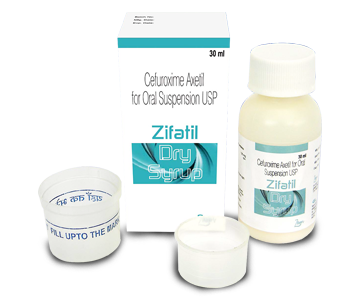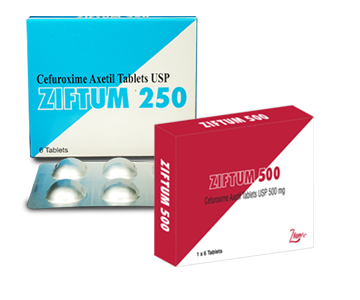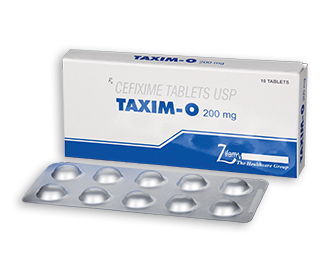Zifex Dry syrup
- ENG
- မြန်မာ
ZIFEX DRY SYRUP
(Cefixime for Oral Suspension USP)
Composition:
Each 5 ml of reconstituted suspension contains:
Cefixime USP as Trihydrate
Equivalent to Anhydrous Cefixime ….. 50mg
INDICATIONS
Zifex Dry Syrup is an orally active cephalosporin antibiotic which has marked in vitro bactericidal activity against a wide variety of Gram-positive and Gram-negative organisms.
It is indicated for the treatment of the following acute infections when caused by suscpetible micro-organisms:
Upper Respiratory Tract Infections(URTI): e.g. otitis media; and other URTI where the causative organism is known or suspected to be resistant to other commonly used antibiotics, or where treatment failure may carry significant risk.
Lower Respiratory Tract Infection: e.g. bronchitis.
Urinary Tract Infections: e.g. cystitis, cystourethritis, uncomplicated pyelonephritis.
Clinical effocacy has been demonstrated in infections caused by commonly occuring pathogens including Streptococcus pneumoniae, Streptococcus pyoegens, Escherichia coli, Proteus mirabilis, Kliebsiella speicies, Haemophilus influenzae (beta-lactamase positive and negative), Branhamella catarrhalis(beta-lactamase positive and negative) and Enterobacter species. Zifex Dry Syrup is highly stable in the presence of beta-lactamase enzymes.
Most strains of enterococci (Streptococcus faecalis, group D Streptococci) and Staphylococci (including coagulase positive and negative strains and methicillin-resistant strains) are resistant to Zifex Dry Syrup. In addition, most strains of Pseudomonas, Bacteriodes fragilis, Listeria monocytogenes and Clostridia are resistant to Zifex Dry Syrup.
DOSAGE:
Route of Administration: Oral
Absorption of Zifex Dry Syrup is not significantly modified by the presence of food. The usual course of treatment is 7 days. This may be continued for up to 14 days if required.
Adults and Children over 10 Years: The recommended adult dosage is 200-400mg daily according to the severity of infection, given either as a single dose or in two divided doses.
The Elderly: Elderly patients may be given the same dose as recommended for adults. Renal function should be assessed and dosage should be adjusted in severe renal impairment (See “Dosage in Renal Impairment”).
Children (Use Paediatric Oral Suspension): The recommended dosage for children is 8 mg/kg/day administered as a single dose or in two divided doses. As a general guide for prescribing in children the following daily doses in terms of volume of Paediatric Oral Suspension are suggested:
6 months up to 1 year: 3.75ml daily
Children 1-4 years: 5 ml daily
Children 5-10 years: 10ml daily
Children weighing more than 50kg or older than 10 years should be treated with the recommended adult dose(200-400 mg daily depending on the severity of infection).
The safety and efficacy of cefixime has not been established in children less than 6 months.
Dosage in Renal Impairment: Zifex Dry Syrup may be administered in the presence of impaired renal function. Normal dose and schedule may be given in patients with creatinine clearances of 20ml/min or greater. In patients whose creatinine clearance is less than 20ml/min, it is recommended that a dose of 200mg once daily should not be exceeded. The dose and regimen for patients who are maintained on chronic ambulatory peritoneal dialysis or haemodialysis should follow the same recommendation as that for patients with creatinine clearances of less than 20ml/min.
SPECIAL WARNINGS AND PRECAUTIONS:
Zifex Dry Syrup should be given with caution to patients who have shown hypersensitivity to other drugs. Cephalosporins should be given with caution to penicillin-sensitive patients, as there is some evidence of partial cross-allergenicity between the penicillins and cephalosporins.
Patients have had severe reactions (including anaphylaxis) to both classes of drugs. If an allergic effect occurs with Zifex Dry Syrup, the drug should be discontinued and the patient treated with appropriate agents if necessary.
Zifex Dry Syrup should be administered with caution in patients with markedly impaired renal function(See “Dosage in Renal Impairment”).
Treatment with broad spectrum antibiotics alters the normal flora of the colon and may permit overgrowth of clostridia. Studies indicate that a toxin produced by Clostridium difficile is a primary cause of antibiotic-assosiated diarrhoea. Pseudomembranous colitis is associated with the use of broad-spectrum antibiotics (including macrolides, semi-synthetic penicillins, lincosamides and cephalosproins); it is therfore important to consider its diagnosis in patients who develop diarrhoea in association with the use of antibiotics. Symptons of pseudomembranous colitis may occur during or after antibiotic treatment.
Management of pseudomembranous colitis should include sigmoidoscopy, appropriate bacteriologic studies, fluids, electrolytes and protein supplementation. If the colitis does not improve after the drug has been discontinued, or if the symptoms are severe, oral vancomycin is the drug of choice for antibiotic-associated pseudomembranous colitis produced by C.difficile. Other causes of colitis should be excluded.
UNDESIRABLE EFFECTS:
Zifex Dry Syrup is generally well tolerated. The majority of adverse reactions observed in clinical trials were mild and self-limiting in nature.
Gastrointestinal Disturbances: The most frequent side effects seen with Zifex Dry Syrup are diarrhoea and stool changes; diarrhoea has been more commonly associated with higher doses. Some cases of moderate to severe diarrhoea have been reported; this has occasionally warranted cessation of therapy. Zifex Dry Syrup should be discontinued if marked diarrhoea occurs. Other gastrointestinal side effects seen less frequently are nausea, abdominal pain, dyspepsia, vomiting and flatulence. Pseudomembranous colitis has been reported (see above).
Central Nervous System: Headache and dizziness.
Hypersensitivity Reactions: Allergies in the form of rash, pruritus, drug fever and arthralgia have been observed, including rare cases of urticaria or angioedema. These reactions usually subsided upon discontinuation of therapy. Rarely, erythema multiforme, Stevens-Johnson syndrome and toxic epidermal necrolysis have been reported.
Haematological and Clinical Chemistry:
Thrombocytosis, thrombocytopenia, leucopenia, hypereosinophilia, neutropenia and agranulocytosis have been reported. These reactions were infrequent and reversible. Mild transient changes in liver and renal function tests have been observed.
Hepatic Disorders: Transient rises in liver transaminases, alkaline phosphatase and jaundice can also occur.
Miscellaneous: Other possible reaction include genital pruritus and vaginitis.
OVERDOSE:
There is no experience with overdoses with Zifex Dry Syrup.
Adverse reaction seen at dose levels up to 2g Zifex Dry Syrup in normal subjects did not differ from the profile seen in patients treated at the recommended doses. Gastric lavage may be indicated in overdosage. No specific antidote exists. Cefixime is not removed from the circulation in significant quantities by dialysis.






